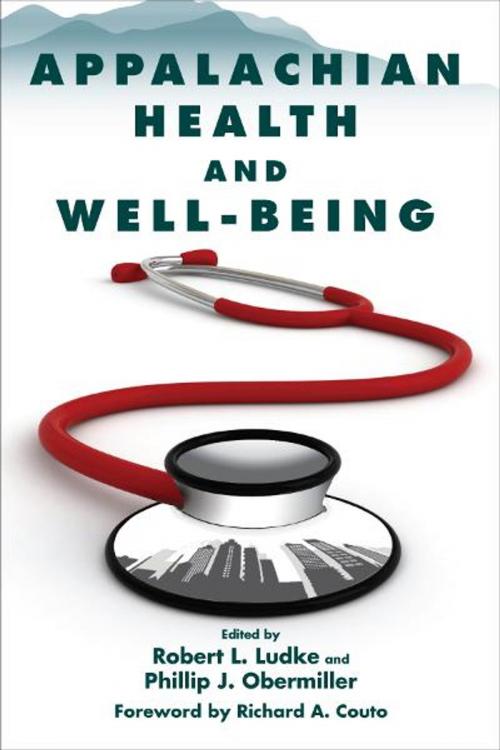Appalachian Health and Well-Being
Nonfiction, Health & Well Being, Health, Reference, History, Americas, United StatesAppalachians have been characterized as a population with numerous disparities in health and limited access to medical services and infrastructures, leading to inaccurate generalizations that inhibit their healthcare progress. Appalachians face significant challenges in obtaining effective care, and the public lacks information about both their healthcare needs and about the resources communities have developed to meet those needs.
In Appalachian Health and Well-Being, editors Robert L. Ludke and Phillip J. Obermiller bring together leading researchers and practitioners to provide a much-needed compilation of data- and research-driven perspectives, broadening our understanding of strategies to decrease the health inequalities affecting both rural and urban Appalachians. The contributors propose specific recommendations for necessary research, suggest practical solutions for health policy, and present best practices models for effective health intervention. This in-depth analysis offers new insights for students, health practitioners, and policy makers, promoting a greater understanding of the factors affecting Appalachian health and effective responses to those needs.
Appalachians have been characterized as a population with numerous disparities in health and limited access to medical services and infrastructures, leading to inaccurate generalizations that inhibit their healthcare progress. Appalachians face significant challenges in obtaining effective care, and the public lacks information about both their healthcare needs and about the resources communities have developed to meet those needs.
In Appalachian Health and Well-Being, editors Robert L. Ludke and Phillip J. Obermiller bring together leading researchers and practitioners to provide a much-needed compilation of data- and research-driven perspectives, broadening our understanding of strategies to decrease the health inequalities affecting both rural and urban Appalachians. The contributors propose specific recommendations for necessary research, suggest practical solutions for health policy, and present best practices models for effective health intervention. This in-depth analysis offers new insights for students, health practitioners, and policy makers, promoting a greater understanding of the factors affecting Appalachian health and effective responses to those needs.















